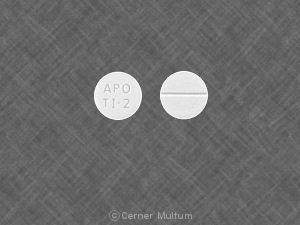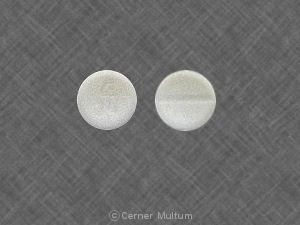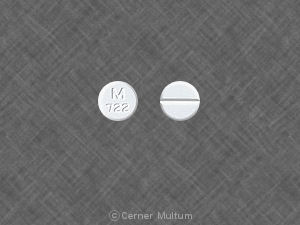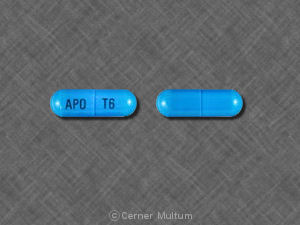What is the most important information I should know about tizanidine?
You should not take tizanidine if you are also taking fluvoxamine (Luvox) or ciprofloxacin (Cipro).
Do not use tizanidine at a time when you need muscle tone for safe balance and movement during certain activities.
What is tizanidine?
Tizanidine is a short-acting muscle relaxer. It works by blocking nerve impulses (pain sensations) that are sent to your brain.
Tizanidine is used to treat spasticity by temporarily relaxing muscle tone.
Tizanidine may also be used for purposes not listed in this medication guide.
What should I discuss with my healthcare provider before taking tizanidine?
You should not use tizanidine if you are allergic to it, or if:
- you also take the antidepressant fluvoxamine (Luvox); or
- you also take the antibiotic ciprofloxacin (Cipro).
To make sure tizanidine is safe for you, tell your doctor if you have:
- liver disease;
- kidney disease; or
- low blood pressure.
It is not known whether this medicine will harm an unborn baby. Tell your doctor if you are pregnant or plan to become pregnant.
It is not known whether tizanidine passes into breast milk or if it could harm a nursing baby. Tell your doctor if you are breast-feeding a baby.
How should I take tizanidine?
Follow all directions on your prescription label. Your doctor may occasionally change your dose to make sure you get the best results. Do not use this medicine in larger or smaller amounts or for longer than recommended.
In most cases you may take tizanidine up to 3 times in one day if needed. Allow 6 to 8 hours to pass between doses.
You may take tizanidine with or without food, but take it the same way each time. Switching between taking tizanidine with food and taking it without food can make the medicine less effective or cause increased side effects.
Switching between tizanidine tablets and capsules can also cause changes in side effects or how well the medicine works.
- Taking the tablets with food can increase your blood levels of tizanidine.
- Taking the capsules with food can decrease your blood levels of tizanidine.
Follow your doctor's instructions carefully. After making any changes in how you take tizanidine, contact your doctor if you notice any change in side effects or in how well the medicine works.
Tizanidine is a short-acting medication, and its effects will be most noticeable between 1 and 3 hours after you take it. You should take tizanidine only for daily activities that require relief from muscle spasms.
Do not take more than three doses (36 mg) in a 24-hour period. Too much of this medicine can damage your liver.
You will need frequent blood tests to check your liver function.
If you stop using tizanidine suddenly after long-term use, you may have withdrawal symptoms such as dizziness, fast heartbeats, tremors, and anxiety. Ask your doctor how to safely stop using this medicine.
Store at room temperature away from moisture and heat.
What happens if I miss a dose?
Take the missed dose as soon as you remember. Skip the missed dose if it is almost time for your next scheduled dose. Do not take extra medicine to make up the missed dose.
What happens if I overdose?
Seek emergency medical attention or call the Poison Help line at 1-800-222-1222.
Overdose symptoms may include weakness, drowsiness, confusion, slow heart rate, shallow breathing, feeling light-headed, or fainting.
What should I avoid while taking tizanidine?
Do not use tizanidine at a time when you need muscle tone for safe balance and movement during certain activities. In some situations, it may be dangerous for you to have reduced muscle tone.
Drinking alcohol with this medicine can cause side effects.
This medicine may impair your thinking or reactions. Be careful if you drive or do anything that requires you to be alert. Avoid getting up too fast from a sitting or lying position, or you may feel dizzy. Get up slowly and steady yourself to prevent a fall.
What are the possible side effects of tizanidine?
Get emergency medical help if you have signs of an allergic reaction: hives; difficult breathing; swelling of your face, lips, tongue, or throat.
Call your doctor at once if you have:
- a light-headed feeling, like you might pass out;
- weak or shallow breathing;
- confusion, hallucinations; or
- pain or burning when you urinate.
Common side effects may include:
- drowsiness, dizziness, weakness;
- feeling nervous;
- blurred vision;
- flu-like symptoms;
- dry mouth, trouble speaking;
- abnormal liver function tests;
- runny nose, sore throat;
- urination problems;
- vomiting, constipation; or
- uncontrolled muscle movements.
This is not a complete list of side effects and others may occur. Call your doctor for medical advice about side effects. You may report side effects to FDA at 1-800-FDA-1088.
What other drugs will affect tizanidine?
Taking tizanidine with other drugs that make you sleepy or slow your breathing can cause dangerous side effects or death. Ask your doctor before taking a sleeping pill, narcotic pain medicine, prescription cough medicine, a muscle relaxer, or medicine for anxiety, depression, or seizures.
Tell your doctor about all your current medicines and any you start or stop using, especially:
- acyclovir;
- ticlopidine;
- zileuton;
- birth control pills;
-
an antibiotic --ciprofloxacin, gemifloxacin, levofloxacin, moxifloxacin, or ofloxacin;
-
blood pressure medicine --clonidine, guanfacine, methyldopa;
-
heart rhythm medicine --amiodarone, mexiletine, propafenone, verapamil; or
-
stomach acid medicine --cimetidine, famotidine.
This list is not complete. Other drugs may interact with tizanidine, including prescription and over-the-counter medicines, vitamins, and herbal products. Not all possible interactions are listed in this medication guide.
Where can I get more information?
Your pharmacist can provide more information about tizanidine.
Remember, keep this and all other medicines out of the reach of children, never share your medicines with others, and use this medication only for the indication prescribed.
Every effort has been made to ensure that the information provided by Cerner Multum, Inc. ('Multum') is accurate, up-to-date, and complete, but no guarantee is made to that effect. Drug information contained herein may be time sensitive. Multum information has been compiled for use by healthcare practitioners and consumers in the United States and therefore Multum does not warrant that uses outside of the United States are appropriate, unless specifically indicated otherwise. Multum's drug information does not endorse drugs, diagnose patients or recommend therapy. Multum's drug information is an informational resource designed to assist licensed healthcare practitioners in caring for their patients and/or to serve consumers viewing this service as a supplement to, and not a substitute for, the expertise, skill, knowledge and judgment of healthcare practitioners. The absence of a warning for a given drug or drug combination in no way should be construed to indicate that the drug or drug combination is safe, effective or appropriate for any given patient. Multum does not assume any responsibility for any aspect of healthcare administered with the aid of information Multum provides. The information contained herein is not intended to cover all possible uses, directions, precautions, warnings, drug interactions, allergic reactions, or adverse effects. If you have questions about the drugs you are taking, check with your doctor, nurse or pharmacist.
Copyright 1996-2018 Cerner Multum, Inc. Version: 3.01. Revision date: 2/27/2017.










